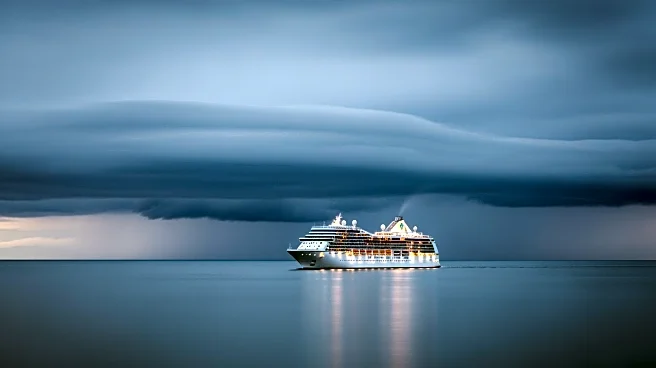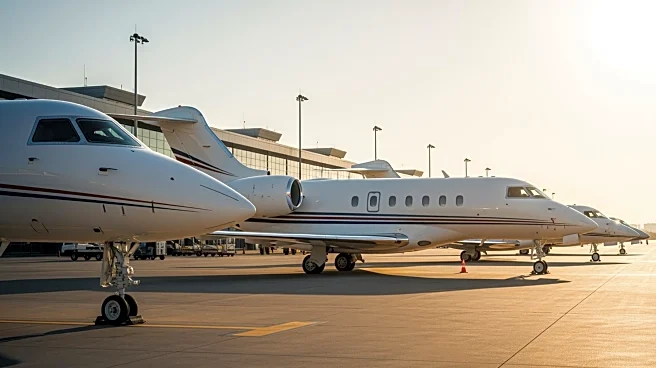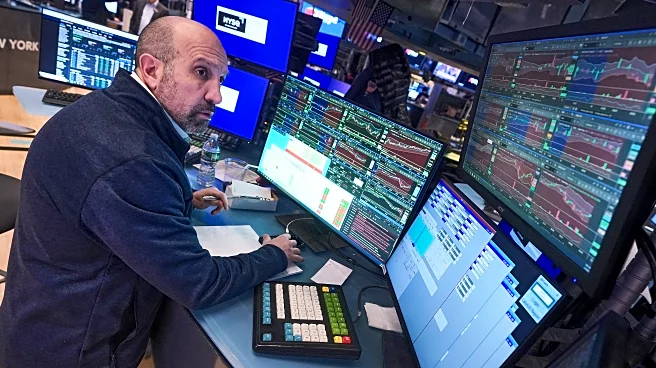What's Happening?
Iceland's cruise industry is facing a significant downturn, with projections indicating a 37% decrease in arrivals by 2027. This decline is attributed to new government measures, including an infrastructure fee on cruise passengers and the removal of
customs and VAT exemptions for smaller vessels. The impact is already being felt, with ports like Ísafjörður expecting substantial financial losses. Local leaders, such as Sigríður Ólöf Kristjánsdóttir from the Westfjords Office of Cruise Iceland, highlight the widespread effects on various sectors tied to cruise traffic, including bus drivers, guides, and cafes. In East Iceland, the situation is described as a 'complete collapse,' with ship arrivals in Borgarfjörður eystri expected to drop dramatically.
Why It's Important?
The decline in cruise arrivals poses a significant threat to Iceland's economy, particularly affecting small businesses and municipalities that rely heavily on tourism. The loss of cruise tours could devastate local operators who have built their livelihoods around these guests. Municipalities that have invested in new harbor facilities are now questioning the viability of such projects. The broader economic impact includes potential job losses and reduced income for communities dependent on summer cruise traffic. If these measures are not reversed, the financial recovery for affected areas may take years.
What's Next?
Stakeholders in Iceland's cruise industry are likely to advocate for the reversal of the new tax measures to prevent further economic damage. Municipalities may seek government intervention to mitigate the impact and explore alternative revenue sources. The industry might also consider restructuring to adapt to the new regulatory environment, potentially focusing on attracting different types of tourism or diversifying their economic activities.
Beyond the Headlines
The situation raises ethical and cultural questions about the balance between economic growth and environmental sustainability. The new measures could be seen as an attempt to manage the environmental impact of increased cruise traffic, but they also highlight the challenges of maintaining economic stability while implementing sustainable practices. Long-term shifts in tourism patterns may emerge, prompting Iceland to reconsider its approach to tourism and infrastructure development.
















